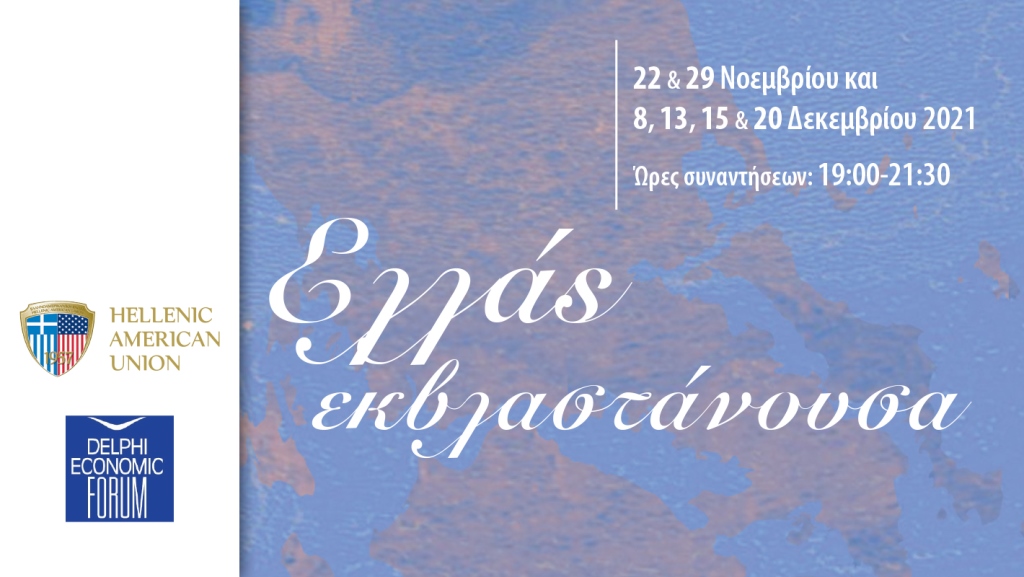As the bicentennial of the Greek Revolution draws to a close, the Hellenic American Union and Delphi Economic Forum are presenting a series of 6 encounters that explore the role of intellectual and artistic creation in shaping the collective consciousness of modern Greece.
The series, entitled “Hellas in Bloom: Creative Greece”, will take place at the Hellenic American Union Theater (Massalias 22, Athens) on November 22 & 29 and December 8, 13, 15 & 20, 2021, at 19:00.
How have the country’s great writers and poets contributed to the continuity of the Greek language? What is the debt owed them by the Greek language today, which claims, along with Hebrew, the title of one of the two oldest languages of Western culture? And how has intellectual and artistic creation served the two-fold nature of modern Hellenism over time —on the one hand, the search for its cultural roots in the vast recesses of time and, on the other, its place in the modern world through its European identity? From Korais, Paparrigopoulos and Papadiamantis to Theotokas, Seferis and Tsirkas, Hellas has continued to send out fresh shoots of creativity... She contemplates and creates in Greek. It is to these creators that we owe the greatest achievement of the past 200 years. The fact that this rock on the edge of the Balkan Peninsula —to paraphrase Seferis—continues to speak and write Greek.
In this series of meetings, creation is seen as the core of our collective consciousness. It may not have had much popular appeal with the masses, but it was the azimuth by which the elites who shaped it found their bearings. As Paparrigopoulos writes his history, Lytras is painting his Hellas, Theotokas is researching the terms of Greekness, and Tsarouchis, a fan of Matisse and the portraits of Fayum, is directing his own Greece. They tell us that Greece is not a picturesque nostalgia; it is an inspiration.
Hellas in Bloom is a catalyst for creation. From Mantzaros to Kalomiris, Skalkottas, Theodorakis, or Hadjidakis, Greeks have never stopped creating their own music, defending their own emotion in their own way of expression. What could be more Greek, and at the same time more European, than the music of Hadjidakis for Koun’s The Birds? From Vyzantios’s Babylonia to Koun, theater has shaped collective sensibility, whether as a spectacle for the masses or as a discipline in the European avant-garde scene. We cannot understand the links between modern Greece and antiquity unless we take into account contemporary productions of ancient Greek drama.

